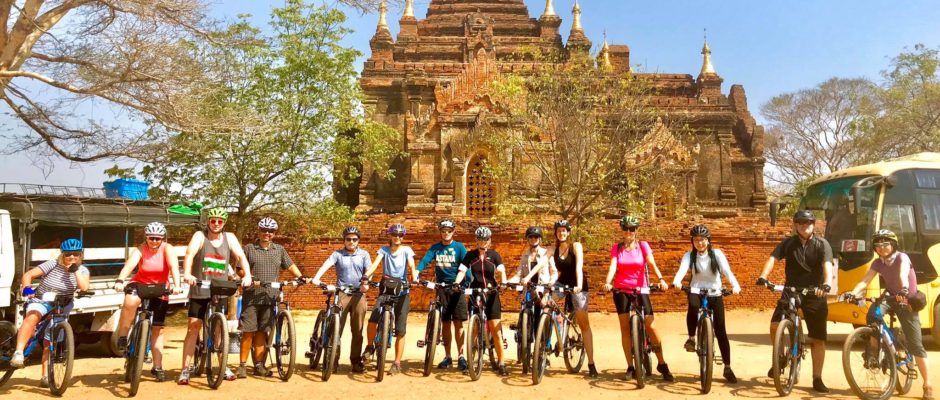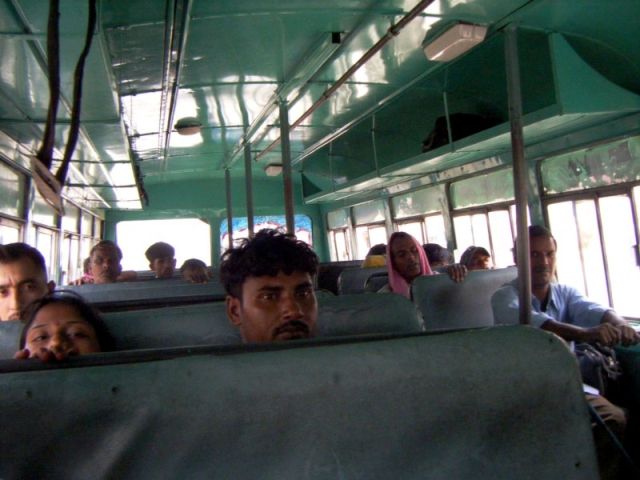インドを旅してると、プライバシーのなさを感じたり、首フリ人形のような返事に悩まされたり、旅をしている時は疲れる事も多いけど、インドを発つとそんなユニークさが懐かしく微笑ましく思える、魅力のインド。 やはり、そんな彼らの態度にも理由があり、なるほど~。 へ~ そんな事もあったんだ~と教えてくれるのが、カルチャーショック・インド という本。
という本。
作者 Gitanjali Kolanad さんはインドとカナダで育ったインド人。 インド人として、また、カナダ人(外国人)として両方の目でインドの風習、歴史や人柄等を面白おかしくこの本で説明しています。 古い本ではありますが、今だに見られる様子や、そういう背景があるから、より今のインドを知れる、と言った所もあり旅行前でも旅行後でも楽しめる本です。 そして、彼女の書き方は簡単で面白いので、英語でも、読みやすくお勧め。 常に笑いをふきだしながら読んでしまいました。
西洋のアドベンチャーツアーの多くは地元、もしくはその地域出身のツアーリーダーを採用するのは、そんな、ガイドブックに載ってない事、地元の人しか分からない事にも触れ合えるよさを味わってもらう所にあります。
ガイドブックやメディアの情報、歴史だけを見に行くのではなく、こんな地元の人や国に触れ合う旅してみませんか?
from Culture Shock! India: A Guide to Customs and Etiquette by Gitanjali Kolanad
嫁殺し
結婚をする時、花婿の家族は花嫁の家に欲しい物を要求します。 欲しい物を全てもらえないと、嫁を殺して、再度結婚して欲しい物を手に入れようとします。 田舎より、都会に住む中級家庭で多く起こった事件で、1975年にはほぼ毎日こんな事件がデリーで起こってました。 1983年にはデリーだけで、690件、1987年はインド全土で 1786件もの事件があったそうです。
When the bride’s family can no longer meet the demands the young bride may be doused in kerosene and burned alive so that the young man can try again for that new motorcycle or TV set with a new bride. It happens regularly among the Indian middle – class in big cities.
In 1975, in Delhi alone, bride burning were happening almost daily. By 1983, the figure had risen to 690 deaths in Delhi, and in 1987, there were 1786 cases of registered dowry deaths in the whole of India.
コミュニケーション
インド人は先方が聞きたいと思う事を回答します。 もしくは、多分先方が聞きたいだろうな~ という事を答えます。
Communicating – Indians like to tell you what you want to hear, or rather, what they think you want to hear.
ボディースペース
どんなに裕福な家族でも一部屋で寝るような、大家族で常に人に溢れている環境で育ったインド人は ” 1人” というのを寂しく思います。 映画館で人が居る所を選んでワザワザ隣に座ったりするのはそんな理由。 色々質問をしたり、くっついてくるのは、インド人の御もてなしとフレンドリーさから。 1人寂しい旅人への親切なのです。 ただ、インド人の女性には自分の母親や姉妹のように尊重しなければならないので、外国の人にはそういう尊重がなく、近寄ってくる場合があるので、女性は要注意。
Body Space – The Western notion of privacy would leave an Indian feeling very lonely. .. An Indian surveys the rows of empty seats, and choose the seat right next to you… The naturally friendly, curious Indian, sitting too close, starting too long and asking too many questions, is behaving in a polite and hospitable way to a lonely stranger, according to the standards of the Indian culture
The men sitting uncomfortably close to woman is not good. They keep distance with woman and all women treat as their own mother and sister. This does not apply to foreign woman.
交通
実はインドには一様、車道と歩道があるのですよね~ 。 歩道は人々が寝る所、物を売ったり、井戸端会議をしたり、とにかく、”歩道”という事とはまったく関係ない事のためにあるのですよね。 道を歩く人達はそんな障害を乗越えて歩くか、賭けで道にでて、トラックやバス、リクシャーや自転車、牛、時折、ラクダや象の歩く道を歩きます。
Transportation – The fact that there are roads and sidewalks in India … The sidewalks are for people to sleep, sell their wares, park their bicycles, have tea, listen to radio commentaries on cricket, do all manner of things that have nothing to do with walking from one place to the other. Pedestrians may attempt this obstacle course, or take their chances on the street with the buses, trucks, cars, autorickshaws, cycle rickshaws, bicycles, motorcycles, bullock carts, cows and the occasional camel or elephant.
見た目、めちゃくちゃなようですが、実はインドにも交通ルールがあるのですよ。 ま、ジャングルのルールとも言いますか、大きい車に優先権があるのです。
Although it may seem chaotic, there are some rules, but they are rules of the jungle. ” the biggest on the road has the right of way”
インドでは、ブレーキよりクラクションがある方が便利。 それも音がうるさければうるさい方がよし。 長いマントラ歴史から音が重要なのですよね。 きっと。 来るって事を知らせなければならないのです。 完璧に見えていてもね。
It would be easier to drive in India without brakes than without a horn. A horn, the louder the better, is an essential piece of equipment. Perhaps it is because Indians have had an oral culture for so long, or believe so strongly in the mantra, the sound that has power far beyond and meaning. They need to hear you coming, even if they can see you coming perfectly well, before they take you seriously.
手信号
トラックの運ちゃんが、窓から腕を出して、進行方向を指しているのは、大丈夫、車こないから抜かしていいよ、 って事。 右折する時はドライバーが窓から手をだして右折する事を伝え、左折の時は助手席の人が窓から手を出して教えてくれます。 助手席に人が居ない時は、方向支持はないです・・・
Hand gesture for the road – Indian truck drivers have a repertoire of hand gesture that are used instead of indicator lights. A majestic turn of the wrist ending with the fingers pointing out the road ahead means, ” the road is clear, you may pass me “. For a right turn, the driver, who sits on the right, stick his hand out the window. For a left turn, the front passenger does it. If there is no front passenger, the left turn will not be indicated.
バス
とにかく混んでます。 ドアから人がぶら下がり乗るのが当たり前。 バス停ではスピードを落とすだけで、停まりません。 つまり、運動神経のいい人だけばバスの乗り降りができます。
Buses – They are so crowed, … the passengers hang, and they slow down, rather than stop at the bus stops, so only the athletic can get off and on.
列車の旅
マドラスからマデゥライまで列車の旅をした時、8時間トイレも行かずに立ってました。 やっと席が空いて座ると、椅子の上の荷物置きに寝ていた赤ちゃんが頭の上にオシッコを・・・ 隣に座っていた年輩の女性が、” 聖なる水だから、ご利益がある事間違いなし!”と太鼓判押されました・・・
Rail travel – ” When I travelled from Madras to Madurai, I had to stand for 8 hours and never once could use the toilet. When I finally got a seat, the baby sleeping on the luggage rack above me peed on my head. An old woman present assured me it was as good as holy water. ”
ドライバーを雇う車の旅
車とドライバーを雇うのは贅沢ですが、ドライバーは道を知っているので便利です。 (せめて道を聞くことはできますから)
A car with a driver is the luxurious way to hit the road. The driver will know the way ( or at least know how to ask )
下痢
インド人なら子供も知っている下痢の時に利く食べ物。 BRAT Foods – バナナ、お米、リンゴ(一番効果あり)、お茶とトースト。 下痢をすると水分を失います。 水分補給には多め掴みの砂糖と塩少々を水に入れてのみます。 身体の機能にできるだけ任せて菌と対応した方がいいので、下剤は最終的に服用しましょう。
Diarrhea – BRAT foods – Bananas, Rice, Apple ( most effective ) , Tea and Toast. The oral dehydration formula is a big pinch of sugar and a small pinch of salt in the glass of water. Antibiotic is a last resort.
マンゴを焼くか煮た物にミントと炒ったクミンと黒潮、コショウと砂糖を混ぜた水を暑い日、出かける前に飲むと日射病予防になります。
To prevent sun-stoke – Roast or boil a whole raw mango, then mix the flesh with a paste of mint leaves, roasted and ground cumin seeds, black salt, pepper and sugar. Dilute with water and drink it before venturing out the sun.
田舎では2000人に1人の割合でしかお医者さんがいません。 少しの事なら自分でなんとかしましょう。
There is only one doctor for more than 2000 people in rural parts. Be prepare to be your own doctor.
旅行中、ゆとりがないと、” あいつらは!” と我々とあいつらと区別してしまいませんか? あいつらとは変な習慣をもつ相手で我々とはノーマルな者。 自分の常識は自分だけのもの。 自分達がお客であって、彼らの風習に合わせるようにしましょう。
When faced with the frustrations and difficulty of travel, it is easy to talk rudely to or about ” them ” , as if dividing the world into them and us. They are the ones with funny customs, and we are the normal ones. As visitors, your norm are no one’s concern but your own. Make the necessary adjustments.
友達
駅で切符を購入するラインが長く、知り合いを通して買ってきてあげるよ、 なんていう人には要注意。 フレンドリーでも知らない人とは一旦お金が絡んだら怪しい。
Instant friends – any situation where money passes hands between you and a stranger is suspect. ( long line up at train station )
女性は80歳以下の男性の車には1人で乗らないようにしましょう。
Woman should be wary of accepting a ride with a single male under 80 years of age.
田舎で、夜の散歩にでました。 するとしゃがみこんでいた集団が突然立ち上がり、気まずそうに貴方を眺めます。 危ないから逃げた方がいいでしょうか? 実は田舎では村の廻りの空き地がトイレなのです。 それくらいの時間になると皆、手に水ポットを持って出かけます。
In rural area, you decide to take an evening stroll through the paddy fields, as you walk, squatting figures all around you stand up, looking decidedly uncomfortable. Should you be worried? – The fields around a village are often the toilets, and late evening is the time that people set off with their pots of water to answer nature’s call.







